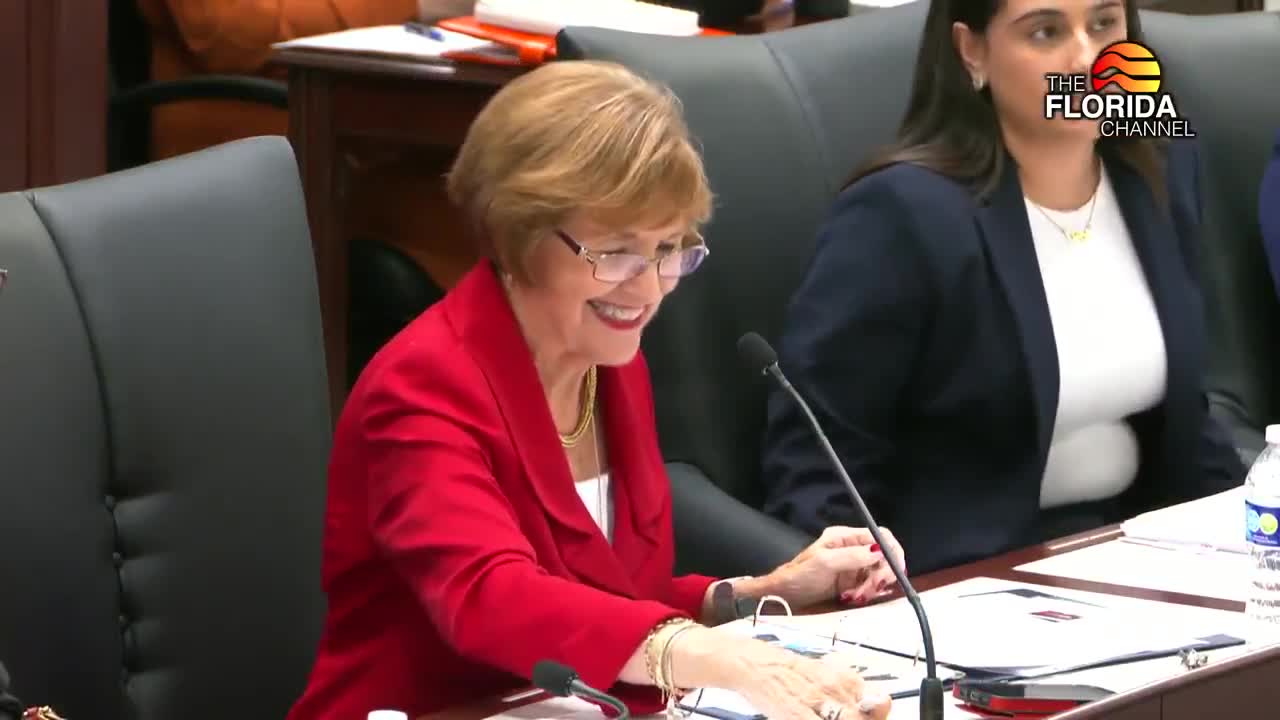State officials ask Legislature to boost college and workforce funding as enrollments rise
Get AI-powered insights, summaries, and transcripts
Subscribe
Summary
Florida Department of Education officials told the Senate Higher Education Appropriations Committee that enrollments, completions and program growth in Florida College System and district technical colleges have risen and urged the Legislature to approve increases in operational and capitalization funding to sustain that growth.
Kevin O'Farrell, senior chancellor in the Florida Department of Education, told the Senate Higher Education Appropriations Committee that the department is asking the Legislature for increases to several higher-education funding streams to sustain growing workforce programs.
O'Farrell said the department's legislative budget request includes a roughly 2.86% increase for Florida College System institutions, a 10.38% increase in adult education funding and specific asks of $70,000,000 for the Florida College System program fund and $23,000,000 for the district workforce (technical college) fund. The department also requested a $60,000,000 increase to restore the workforce capitalization incentive (workforce cap) to $100,000,000 from the $40,000,000 allocated last year.
The funding request follows statewide growth in career and technical education, O'Farrell told the committee. "We are number 1 in higher education in the entire country," he said, and said Florida colleges and district tech colleges are reporting record enrollments, completions and program additions that the department argues require more operational dollars to remain sustainable.
Why it matters: The department presented enrollment and completion data it says show the Florida College System and district technical colleges are expanding faster than past funding levels support. O'Farrell said nearly 500,000 students are enrolled in workforce programming statewide (about 294,000 in Florida College System institutions and about 204,000 in district technical colleges) and that completions rose to roughly 81,000 in 2024–25.
What the department highlighted
- Workforce capitalization incentive: O'Farrell described the workforce capitalization incentive (workforce cap) as a tool for capital investment in CTE facilities and equipment. The program has provided $240,000,000 over its life, and the department released $40,000,000 in the most recent round to support 38 agencies (34 school districts and 4 Florida College System institutions). O'Farrell said the department requests raising that pool to $100,000,000.
- Apprenticeships ("PEACOCK"): The department reported awarding more than $105,000,000 across roughly 124 agencies for apprenticeship and pre-apprenticeship work, including a $14,600,000 recent release for general apprenticeships and a separate teacher-apprenticeship allocation. The teacher-apprenticeship funding was described as approximately $15,000,000 spread across about 14 agencies, with 10 Florida College System institutions, one independent college or university institution (ICUF) and three State University System (SUS) institutions participating.
- Open Door scholarship program: Converted in 2023–24 to a scholarship program, the Open Door program was reported at a total of $105,000,000 and the department said 44,605 students have benefited since conversion. The program pays 100% of tuition and related instructional fees for qualifying career and technical education students and can include stipends up to $1,500 at local discretion.
- Industry certifications and performance funding: The department described the Career and Professional Education (CAPE) industry-certification funding mechanism and said last year it funded about 17,725 certifications at an average of about $1,130 per funded certification on the Florida College System side. On the district technical-college side, O'Farrell said 12,549 industry certifications were reported last year but the available appropriation required a prorate and averaged about $677 per certification; the department is asking for a $4,000,000 increase to better fund those awards.
Data and program growth cited
- The department said Florida College System institutions served more than 686,000 students in 2024–25 (head count) and reported a 6.7% increase in head count and a 4.4% increase in credential completions from the prior year.
- Dual enrollment: the department said nearly 104,000 students participated in dual enrollment (a 15% increase) and that families saved about $95,000,000 in tuition by using dual-enrollment options.
- Program inventory and adoption: O'Farrell said Florida maintains a statewide inventory of career and technical frameworks (about 750 combined for secondary and postsecondary, roughly 572 postsecondary frameworks) and that local educational agencies offering those programs grew from about 5,825 uses of frameworks to about 9,276 — a roughly 60% increase.
- Emerging fields: The department showed large percentage growth in new program enrollments such as artificial intelligence, computer-aided design and data analytics; O'Farrell emphasized the need to embed cross-cutting competencies (for example, AI skills) into existing frameworks rather than treat them as standalone items.
Accountability and program review
O'Farrell described the CTE audit rule and an accountability process now in place to limit unnecessary duplication of programs. Postsecondary programs are reviewed against retention, completion, employment or continuing-education outcomes and local demand metrics; programs falling short of thresholds are slated for phase-out beginning in 2026 unless supplemental evidence is provided.
Committee reaction and follow-up
Committee members pressed the department for more information on employer demand, placement rates, the effect of automation and AI on future program demand, and how clock-hour technical programs articulate into college-credit pathways (conversion and local articulation agreements). O'Farrell said the department would provide more detailed breakdowns, including FTE models and placement metrics, in later briefings.
No formal committee votes were taken on the requests during the hearing.
What happens next: The department's legislative budget requests will be considered through the standard appropriations process in the Senate and House, where members will weigh the requested increases against other budget priorities.
